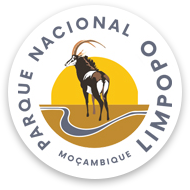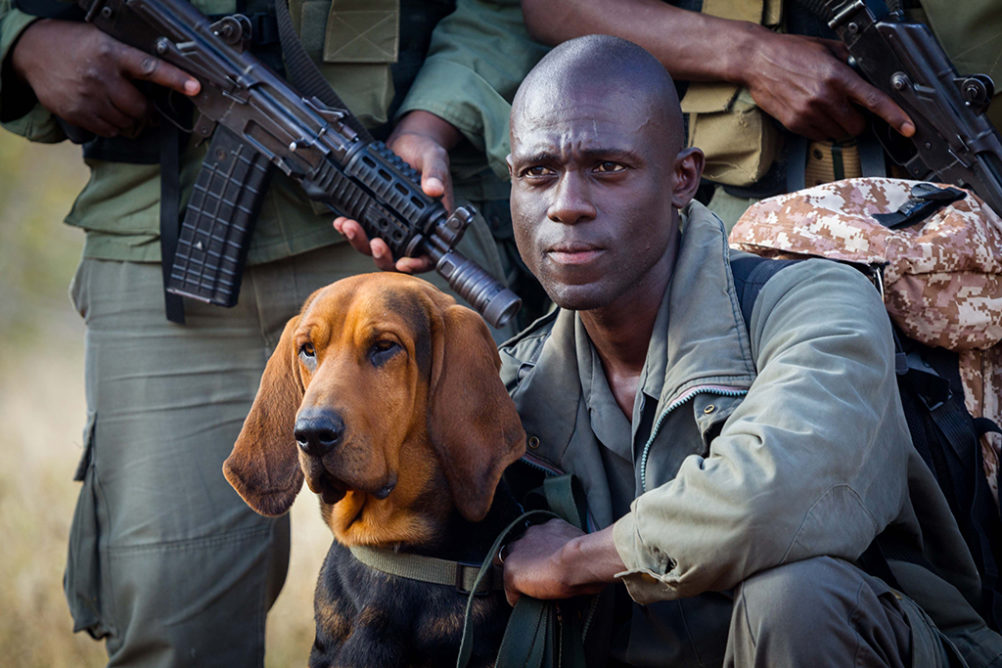In recent years, Peace Parks Foundation and its conservation partners have successfully incorporated canines into counter-poaching operations, harnessing the power of a sense of smell that is up to 10 000 times more effective than a human’s. But achieving a successful symbiosis between ranger teams and dogs is something that takes many months and concerted investment to achieve. The process of becoming a qualified canine (K9) handler requires constant, intensive training where technical aspects come second to the deeper experience of forming powerful bonds of mutual trust, understanding and respect between man and animal.
“It is amazing the bonds that are formed; they can feel my emotions and I can feel theirs. Their behaviour even changes depending on my emotions. We understand each other,” says Eduardo Thaunde, one of three field rangers from Mozambique’s National Administration for Conservation Areas (ANAC) who were recently awarded their K9 handler qualification in Limpopo National Park. The rangers successfully completed an in-depth, five-day assessment conducted by the Tracking & Conservation K9 Group, after a full year of training out in the field, using bloodhound cross dobermans specifically bred for the purpose of tracking.
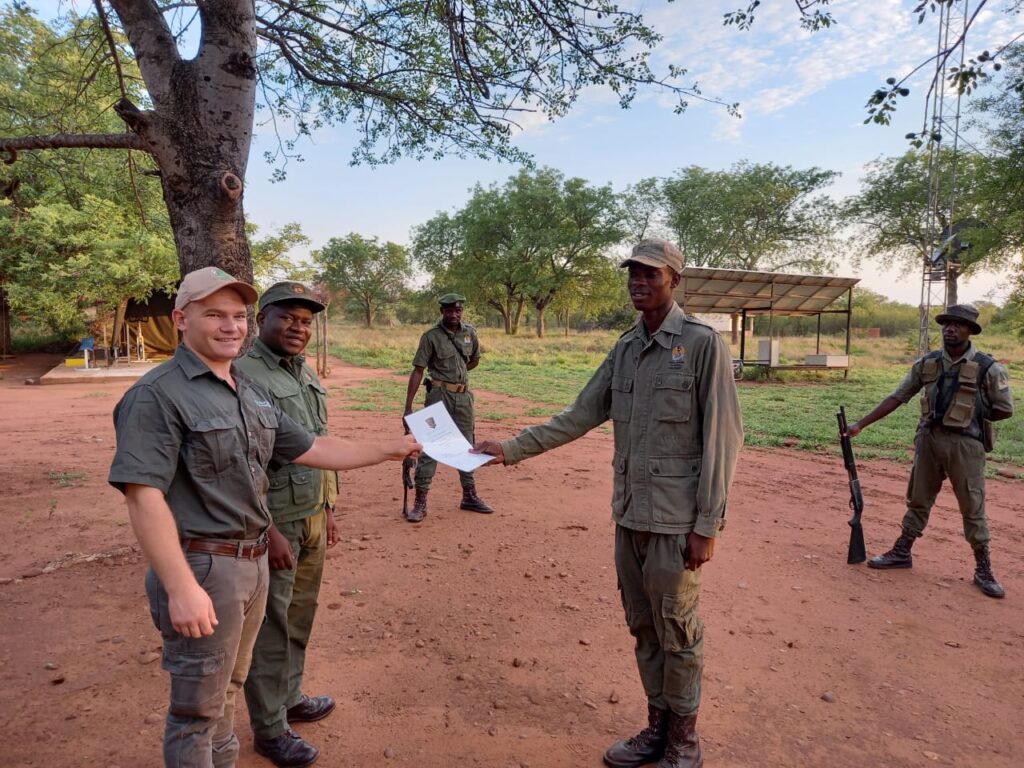
Eduardo and the other two rangers – Jossefa Maluleque and Corcilio Maholele – will be deployed to assist with counter-poaching operations in the national parks within the Mozambique component of the Great Limpopo Transfrontier Conservation Area. ANAC and Peace Parks Foundation have partnership agreements in place to jointly manage and develop the Limpopo, Banine and Zinave national parks, with significant investments having been made in counter-poaching operations.
A cultural, personal, and practical challenge
The selection of a suitable K9 handling candidate requires an assessment of everything from cultural beliefs, to specific personal qualities.
“Some rangers may not have grown up with dogs around them, or they may not have the motivation to love and prioritise a dog before any benefits of doing it have been seen. In addition, working with the canine requires high levels of patience, self-confidence and responsibility,” explains Gabriel Mpala, a trained K9 handler at Peace Parks, who now leads the training of other prospective handlers.
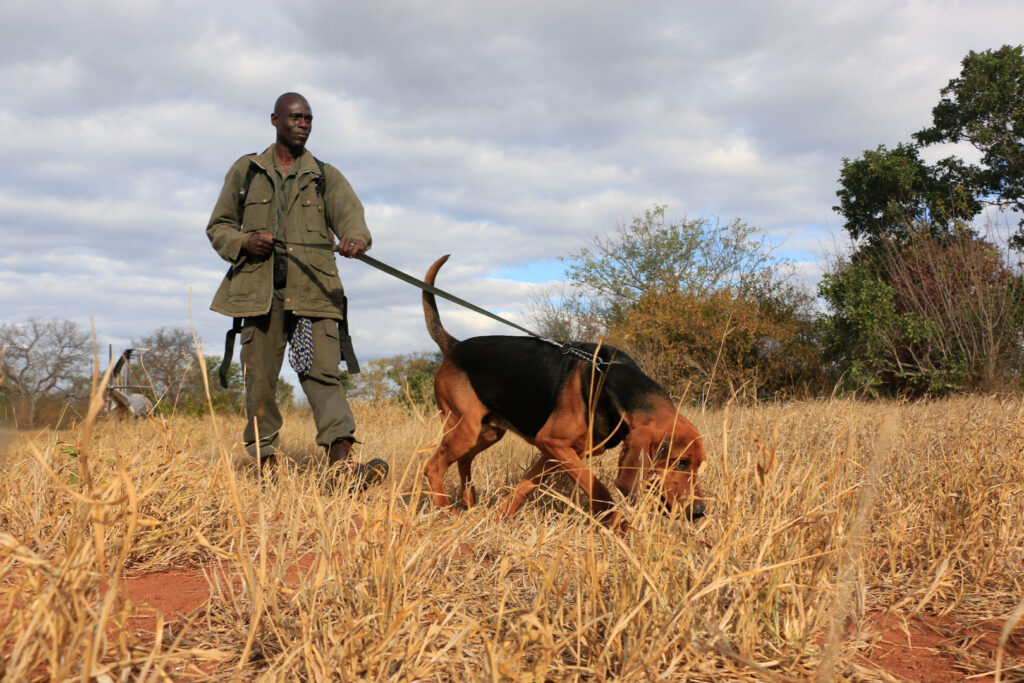
Once candidates are selected, the long process of training – which encompasses a broad curriculum that includes everything from learning where the dog’s super-sniffing capabilities come from (300 million scent receptors compared to a paltry six million in humans), to taking care of the canines at all times and effectively and safely deploying them in both ground and aerial counter-poaching operations – begins.
“The health and wellbeing of the dogs is of the utmost importance. During training, the handlers are required to monitor dog behaviour, check the dog’s health and report every suspected abnormality. On the operational side, they are taught the safety procedures for deploying a K9, and what to do when approaching and apprehending poaching suspects,” says Mpala.
Thaunde says that initially, training was a challenge, but the overall process has been a transformative experience that has helped him to develop on both a professional and personal level.
In the end, it was amazing to see how the dogs would listen to my commands; sitting, eating, staying and tracking when I asked to them to. I am happy to be a part of this initiative and look forward to continue being a handler. Through this process, my skill set has been uplifted, and I also learnt the personal value of patience and dedication.
Canines and their handlers are vital components in the quick reaction force that responds to poaching incidents. Often having to react at a moment’s notice, both man and human need to be kept on their toes.
Apart from regularly checking the health of their furry colleagues, qualified handlers are required to take the dogs for walks of a minimum of 3km every morning and afternoon to maintain fitness levels.
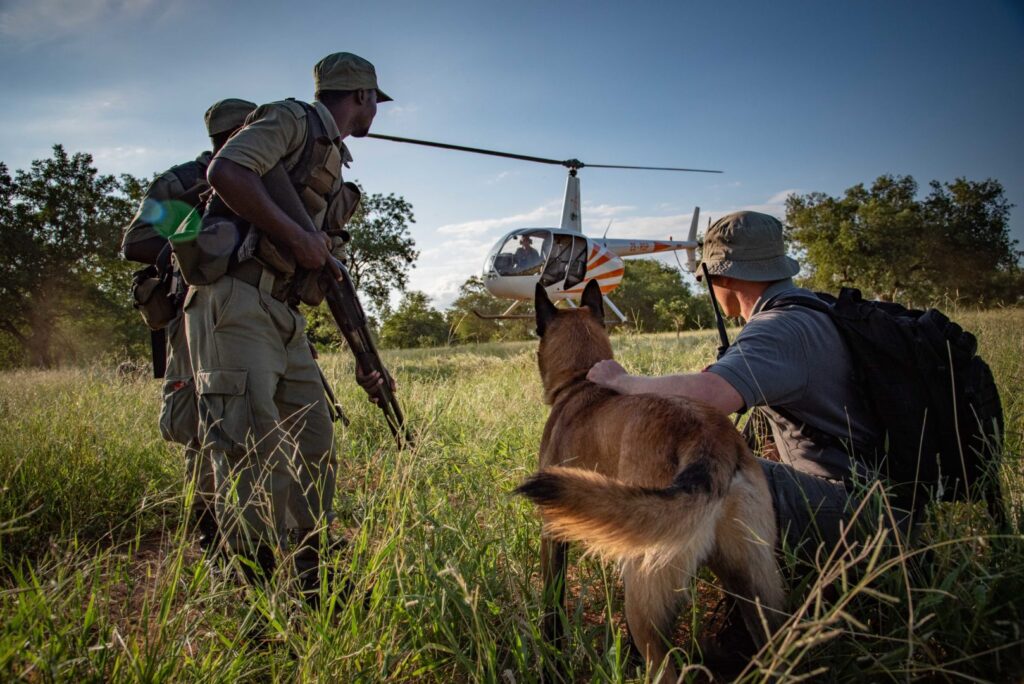
Investing in canines to protect wildlife
Peace Parks has incorporated canines into counter-poaching operations since 2016, working closely with the Tracking and Conservation K9 Group, led by highly experienced trainer Gaven Holden-Smith. The original line tracker dog, “Fury”, was bred and trained by the Group before being deployed in Mozambique, followed by an additional four bloodhound cross dobermans. Three of these dogs were recently introduced in Malawi’s Nyika National Park (within the Nyika-North Luangwa section of the Malawi-Zambia Transfrontier Conservation Area) where they will be paired up with the next generation of handlers.
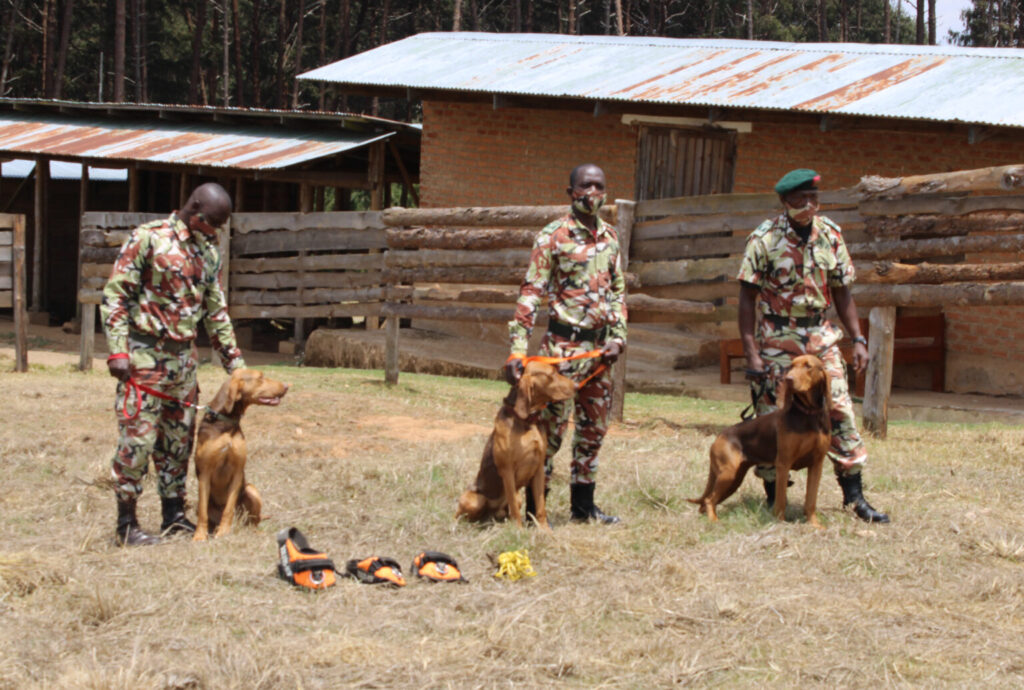
“With their unparalleled effectiveness in helping to identify potential threats and tracking down poachers, canines have proven to be an invaluable force-multiplier in the counter-poaching operations within the parks,” says Sean van Niekerk, Counter Poaching Operations Manager at Peace Parks. “We are proud that the handlers in Mozambique passed with flying colours, and we look forward to ushering in the next generation of handlers in Nyika National Park, to offer expanded protection for Africa’s wildlife.”
